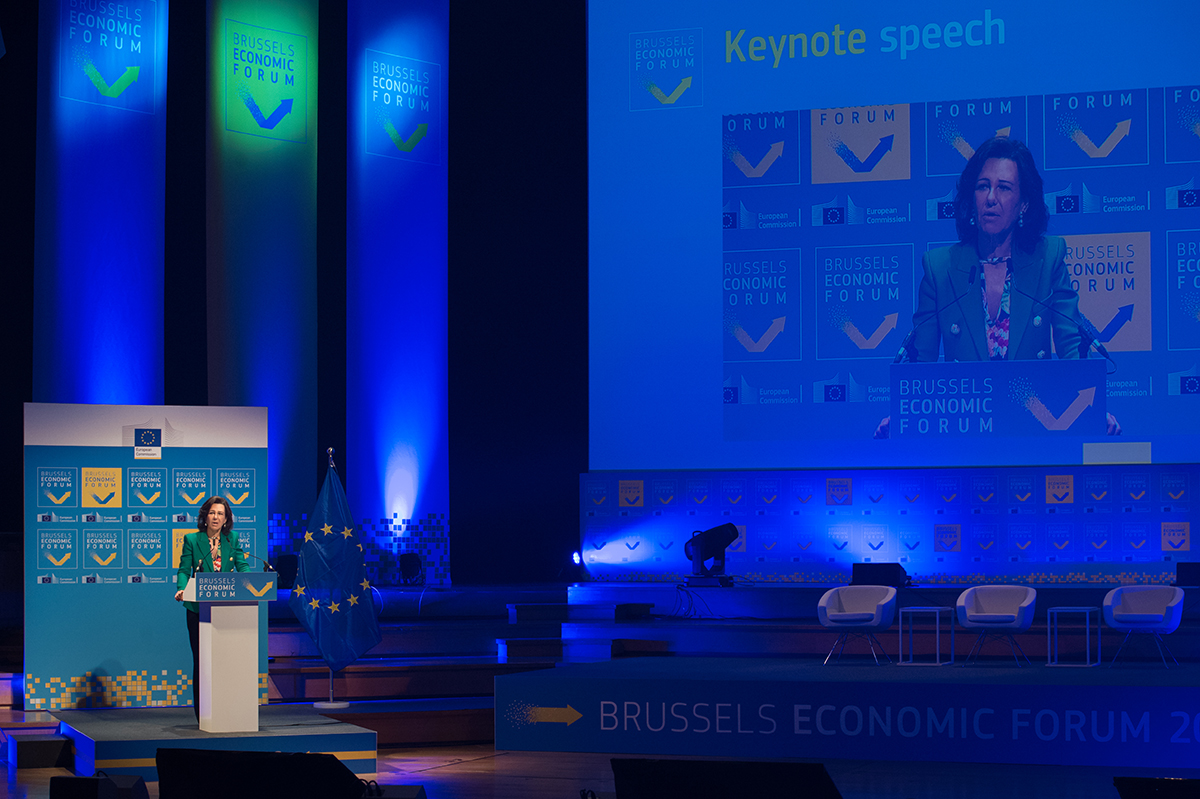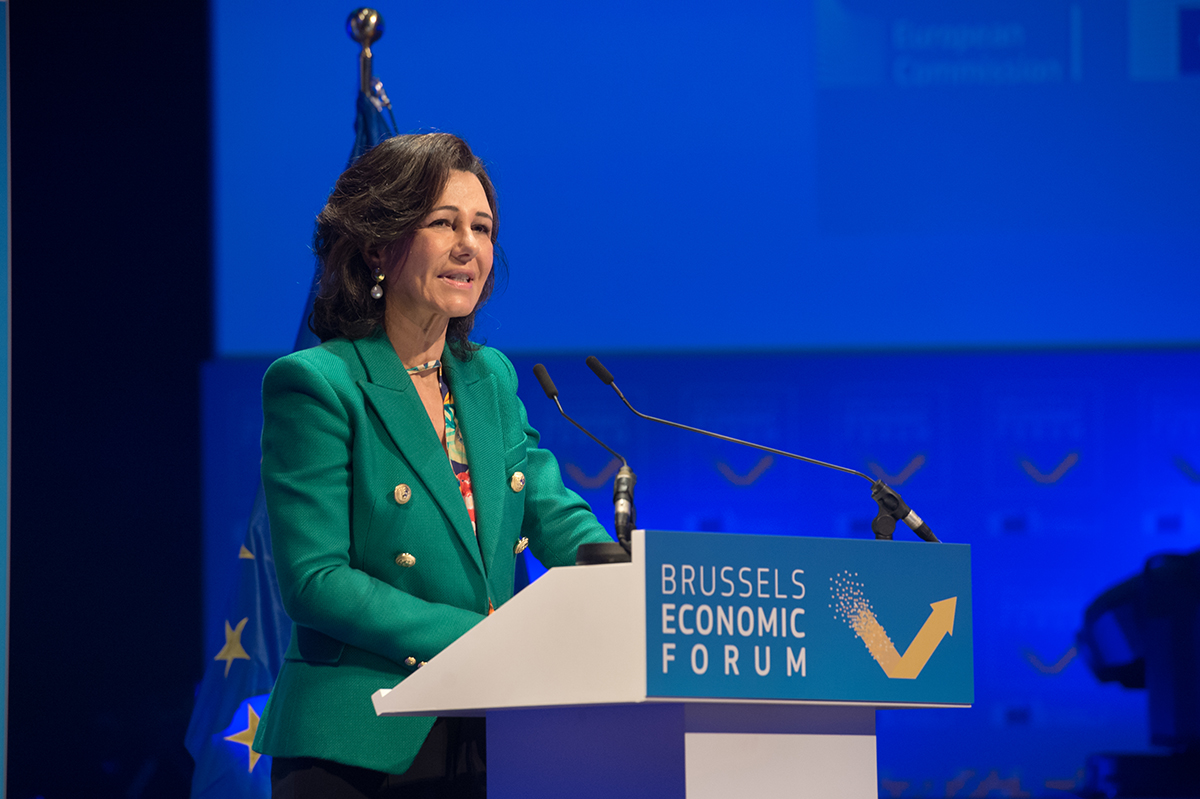Banco Santander Executive Chairman Ana Botín urges Europe to face up to digital disruption
Ana Botín, the Executive Chairman of Banco Santander, told the Brussels Economic Forum that meeting the challenges facing her industry – from the digital revolution to political uncertainty – was not only important for financial services, but essential for Europe as a whole. “We need to change, and fast,” she said. To facilitate that change, she set out priorities and identified areas of progress, covering political, systemic and regulatory aspects.

Recent political developments in Southern Europe, in particular in her home country Spain and in Italy, have once again underlined the importance of the common currency area’s ability to cope with market volatility. That this has not yet been achieved is most tellingly demonstrated by the effect of national bond spreads within the Eurozone, Ms Botín explained.
“Europe needs urgently to be more resilient to volatility and some measure of collective liability offers the best buffer against contagion,” argued Botín.
The fact that credit spreads vary significantly between countries affects the availability of finance and means that equally competitive companies in different parts of Europe do not have the same opportunities.
While Europe’s Economic and Monetary Union is still under construction, it remains vulnerable to digital disruption and ill-equipped to react to it, Ms Botín argued. As the sharing economy and artificial intelligence change the labour market, jobs “in the middle”, the “drivers of the economy”, will be more and more directly linked to the market place, rather than embedded in traditional employment structures, leaving the workforce less protected. To keep the middle classes strong and maintain their security and ability to invest and buy homes, Ms Botín called for a “new social contract for the digital age”.
Past disruptions have shown, she added, that the future of jobs and livelihoods must be the focus of policy efforts. Fair employment rules and adequate social safety nets might look outdated in the face of the new business models since these are so different from those for which the rules and safety nets were created. But, as principles, they are anything but outdated. Equally, education policy should build on the significant human potential Europe possesses. “The EU workforce must be upskilled fast for a changing world.”

Banks, argued Botín, are highly regulated while other, newer players, like digital networks, are not. She suggested that the principle of “same risk - same regulation” be applied and encouraged regulators to shift their attention to the reality of digital disruption.
“A united Europe can push for fairness, transparency, rule-based systems and diversity,” Ms Botín warned, “but a divided one cannot”.
Speeches
- Keynote speech
 (356 Kb) (Ana Botín)
(356 Kb) (Ana Botín)
